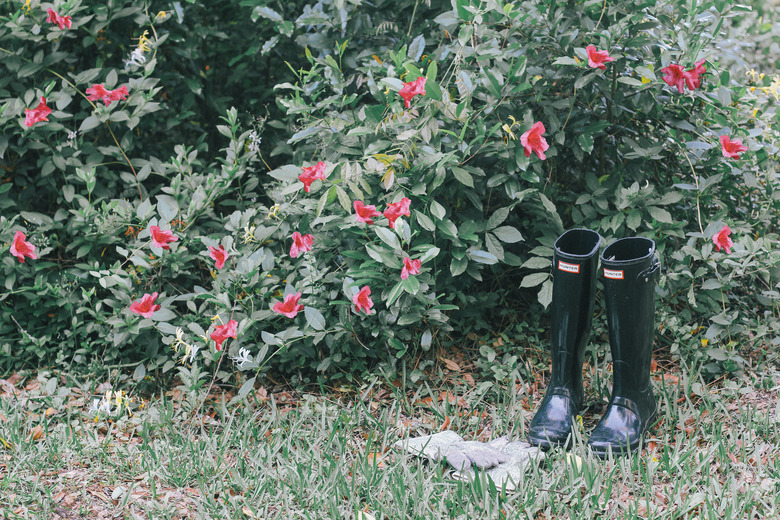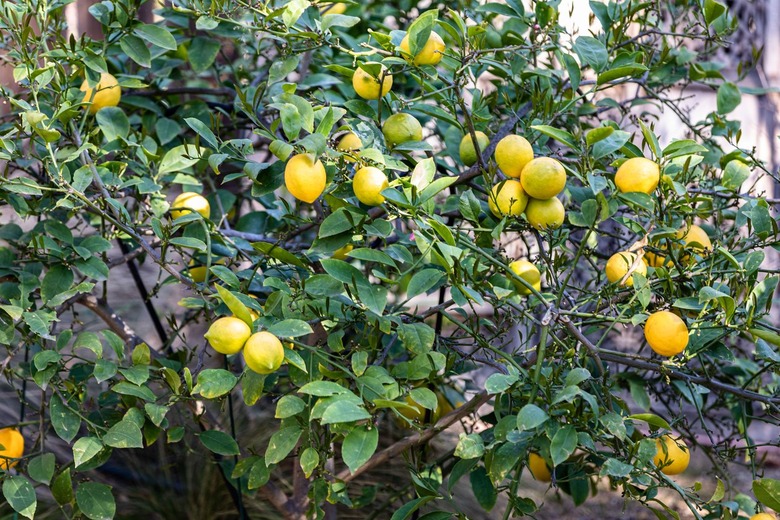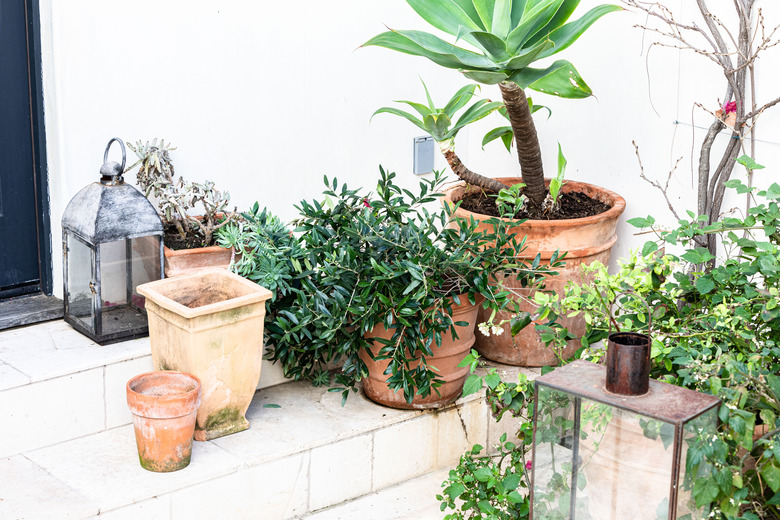Can Vinegar Actually Be Used In The Garden? Read On
Vinegar has been touted as a nontoxic means to make garden soil more acidic, kill weeds, and keep cats, rabbits and even snakes at bay. We're here to tell you which of these claims you can actually count on.
Vinegar for Creating Acidic Soil
Vinegar for Creating Acidic Soil
All vinegar contains acetic acid, a mix of carbon hydrogen and oxygen, which is what makes the taste so sharp. Most of us have plants in the garden that want and need acidic soil (soil with a pH of under 7) to thrive. In fact, some of the most commo and popular plants actually prefer acidic soil, like rhododendrons, hydrangeas, crape myrtle, camellias, holly, gardenias, and azaleas.
If your soil is not sufficiently acidic for your favorite plants, you can add amendments like sphagnum peat, fertilizer containing ammonium nitrate, ammonium sulfate, or sulfur-coated urea.
But, can you simply add household vinegar, like white vinegar, to make your soil more acidic?
You can try a quick acid fix for container plants by irrigating them with a solution of two tablespoons vinegar to a gallon of water. It raises the acidity for the moment.
CONCLUSION: To make soil more acidic, using vinegar isn't effective for very long in container plant soil, and is even less effective if you try it on bedding plants.
Vinegar as a Weed Killer
Vinegar as a Weed Killer
It's every gardener's dream: an ordinary household item that takes out weeds as effectively as toxic chemicals. Your cousin, best friend, and the man down the street may recommend using plain white vinegar as a weed killer, but does this really work?
Household vinegar sounds like it could take on garden weeds; it's an acid which weeds can't possible like. White vinegar contains about five percent acetic acid, enough to dissolve the cell membranes of a weed, which dries out the tissue and kills the plant's foliage. It doesn't damage a strong root system, however.
CONCLUSION: Spraying household vinegar on small, annual weeds may kill the plants. However, the tough perennial weeds will simply grow back. You are better off digging them out and disposing of them in the garbage.
Vinegar as a Cleaning Product
Vinegar as a Cleaning Product
Here's one area in which vinegar shines: as a cleaner. It can spiff up almost anything stained or dirty in the garden.
Take ceramic plant pots for example. Clay pots are thick and sturdy and help regulate the temperature of the soil inside the pot. But the original attractive color can age badly, absorbing minerals and salts from water and fertilizers. Scrub them down with vinegar and watch the stains disappear.
Or how about the bird bath? It can get dirty and grimy, with germs aplenty. Use a scrub brush and a half white vinegar/half water mix, then rinse well. Dirty, rusty garden tools? Soak them overnight in vinegar and you'll be amazed at the difference. And if your brick or limestone paths are getting a calcium buildup, spray a half vinegar/half water mixture on the area and let it set.
CONCLUSION: Vinegar is a smart and useful way to clean common garden tools and objects.
Vinegar to Keep Pests Away
Vinegar to Keep Pests Away
Each gardener will have their own definition of pests. To one, it might be rabbits that snack in the veggie garden. Someone else might be annoyed by the neighbor's cats. And don't forget rodents, snakes, moles, and deer. Each is annoying in its own unique way but they all have one thing in common: they hate the smell of vinegar.
You can keep these creatures at bay with vinegar in any of a number of ways. Try soaking old dish towels in vinegar and staking them around the garden. They will need re-soaking every six days or so.
Another way to scare pests away is to spray a solution of vinegar and water around your garden, with special attention to any particular paths the pests use to get in. For smaller pests, soak a few cotton balls in vinegar and place them in a small plastic container. Poke a few holes through the top of the container, them move it into the garden. For ants, spray vinegar around ant trails.
CONCLUSION: Vinegar is a natural and effective way to keep pests at bay.
Three (Other) Genius Uses for Vinegar
Three (Other) Genius Uses for Vinegar
Vinegar can be used in other amazingly diverse ways.
1. To perk up fresh flowers. Add two tablespoons of vinegar and a little sugar to a quart of water to keep garden flowers looking their best in a vase.
2. Was your dog sprayed by a skunk in the back yard? Rub down the dog's fur with full strength vinegar, then rinse. (It's the ONLY thing that works.)
3. Finally, vinegar will help you get your hands clean after picking berries. Your hands are likely to be covered with stains after a session of berry picking. Even after repeated scrubbing with soap and water, your hands may not be clean. Just wash them once in distilled white vinegar and you'll be happy with the results.
CONCLUSION: Vinegar is the MVP solution for so many of your issues in and around your home.


